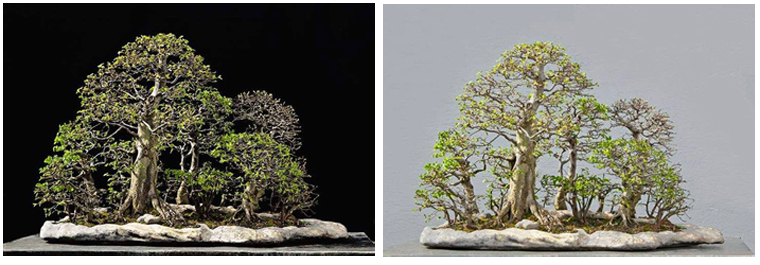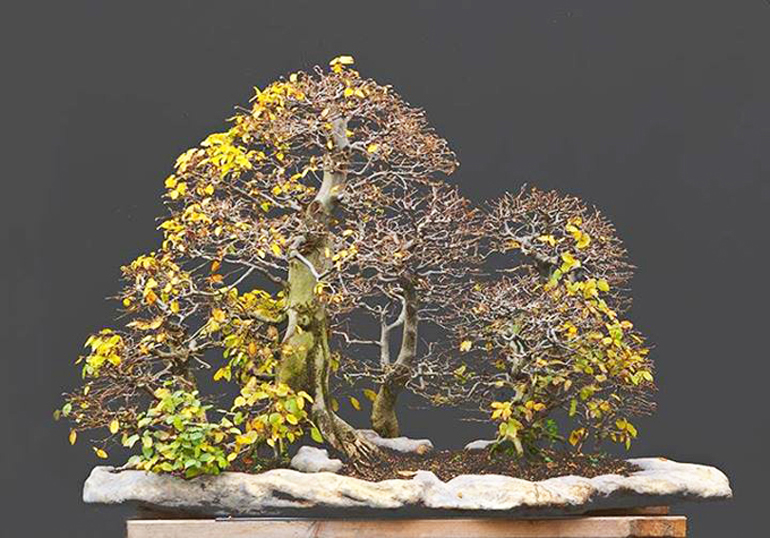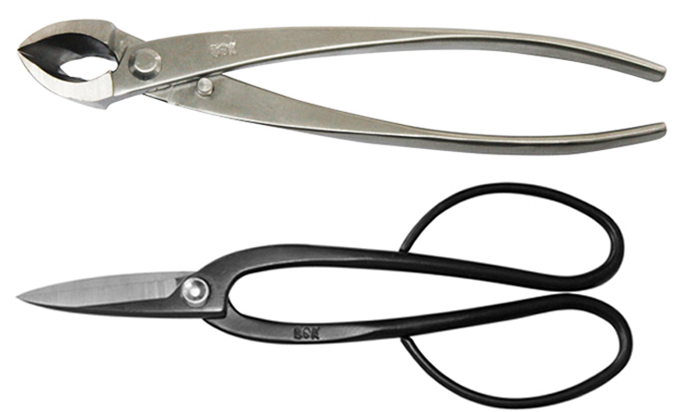I stumbled across the European hornbeam (Carpinus betulas) by Walter Pall on his Bonsai Adventures blog. The shot looks like spring with some trees lagging behind others.
Continuing with our multiple trunk theme (yesterday was Clump style, today is forests) and with Walter Pall (day before yesterday), we’ll go back in time once again to a post that originally appeared in 2014. (we’ve added a photo and a little more text). I think it’s one of our best on forests, and worth another look.
Without the dominant tree this forest planting by Walter Pall would be a whole lot less interesting. With the dominant tree the planting has a focal point, balance, scale, a feeling of age and that more elusive quality we call interest, or beauty.
Focal point. Everything organizes around the dominant tree. Your eye goes there first and from that point the rest of the planting falls into place.
Continued below…
BONSAI AESTHETICS WIRE
BACK IN STOCK!
KILO ROLLS 17.95
ONLY 15.95 EACH FOR 3 OR MORE
500 GRAM ROLLS 9.95
ONLY 8.95 EACH FOR 3 OR MORE
100 GRAM ROLLS 3.95
ONLY 2.95 EACH FOR 10 ROLLS OR MORE
Balance. If you look at the silhouette of the whole planting you’ll immediately see and feel how everything flows from the dominant tree, creating an overall sense of balance and harmony. This has a lot to do with the natural strength and dynamism of scalene triangles and something called The Golden Mean or Golden Ratio (aka Magic Thirds).
Scale. Notice how the large tree is toward the front. Not only does this show off its size and power, it also highlights a sense of depth when contrasted with the medium sized trees in the center axis (left to right) and the smaller trees in the back. Rather than seeing these trees as smaller as they go back, you might see them as further away.
Continued below…
Same forest. Same time. Different backdrop. Walter usually shoots his trees with two or three different backdops.
Continued from above…
Age. When it comes to age, there are two types of natural forests: ones where all the trees are more or less the same age and size (for example a stand of trees that grew up after a forest fire) and the more interesting and common old forests with trees that show a mix of ages and sizes.
This planting is a good example of the latter, with the main tree emphasizing and even exaggerating the contrast. To carry this a little farther, you might even imagine that at one time the dominant tree stood alone and gradually seeded the others.
Continued below…

The plantings are a little small in this composition, but you can still get a pretty good idea of how different backdrops effect our perception of the planting.
Continued from above…
Walter Pall often shows several photos of the the same bonsai with different backdrops and at different times. I think this is a good practice, especially given that no single photo will ever completely capture the power and dynamism of a good bonsai. Not to say that several photos will do that either, but they might help.

Same planting, fall foliage. You can see how the individual trees turn and drop on different schedules.
One of the rewards of winter hardy bonsai.
